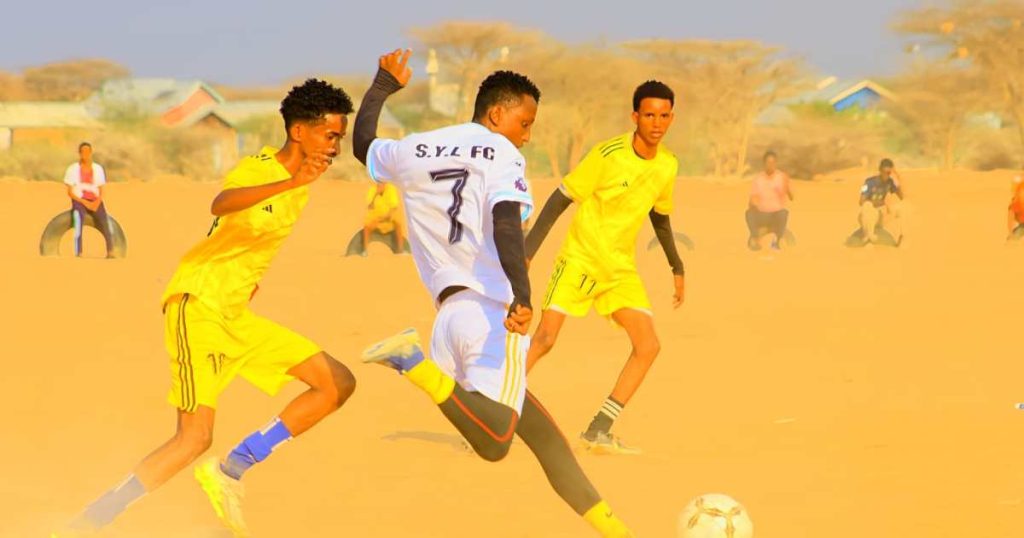In Kenya’s Dadaab refugee camp, football has become a powerful lifeline for refugees who are stuck in indefinite displacement, offering young aspiring athletes a way out of drugs and depression, and even providing an opportunity for business. Dadaab, one of the largest refugee camps in the world, was established by the United Nations in 1991 to accommodate refugees fleeing civil war in Somalia. Today, the camp is home to about 380,000 refugees and asylum seekers, many of whom are under the age of 18 and have spent their entire lives in the camp.
The refugees in Dadaab often suffer from depression, PTSD, and anxiety due to facing an uncertain future with limited opportunities as they endure life in the camp. Some young refugees have even resorted to suicide, while others turn to drugs and substance abuse to cope with despair. Football has emerged as a critical form of alternative therapy in the absence of regular mental health services, with highly attended tournaments helping to reduce substance abuse among the youth in the camp.
Recent scientific data supports the effectiveness of physical activity in managing depression, with football playing a key role in steering the camp’s youth population away from drugs and other pitfalls. Across the three camps that make up Dadaab, football tournaments draw thousands of spectators to watch young players compete on dirt pitches under the scorching sun. Despite a lack of playing gear, the lively matches create a festive atmosphere in the camp, with players and spectators alike becoming deeply engaged in the outcome of the games.
While the camp has yet to produce world-famous footballers, it has seen several Olympic athletes emerge. Notable athletes such as James Nyang Chiengjiek, Anjelina Nadai Lohalith, and Rose Nathike Lokonyen, who are refugees from South Sudan, have represented the Refugee Olympic Team. In Dadaab, one of the standout football stars is Bol Bakuyony Nyieth, a South Sudanese refugee who has found success with his homegrown football business. Nyieth, who sells footballs made in the camp under the label “Made in Dagahaley,” has become a popular figure due to his affordable, locally produced footballs.
Despite facing challenges such as strict security measures that limit his ability to source raw materials, Nyieth remains determined to succeed as an entrepreneur. His footballs, priced lower than imported ones, have become a big hit among camp residents, football teams, and humanitarian organizations working in Dadaab. While the camp remains the only long-term option for many refugees, sport, particularly football, offers a way out not only as a temporary escape from mental health issues but also as a potential path to freedom for those lucky enough to leave the camp one day.













